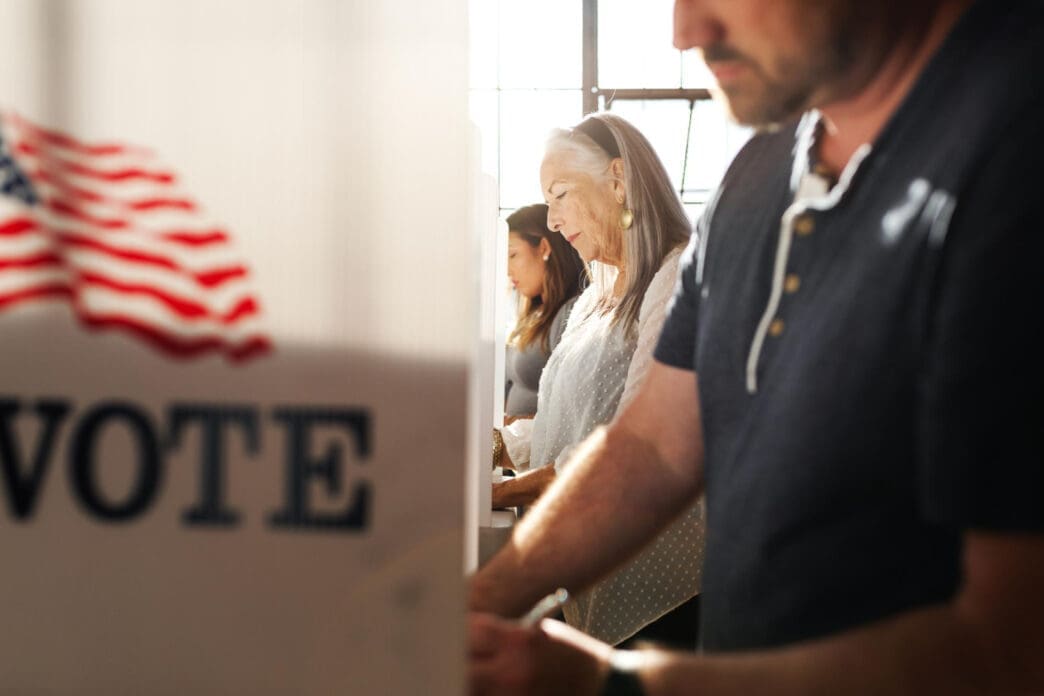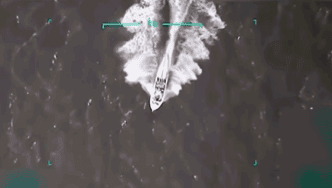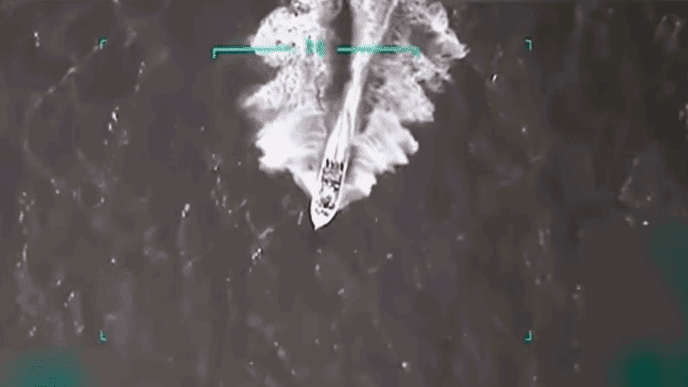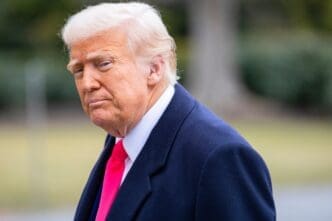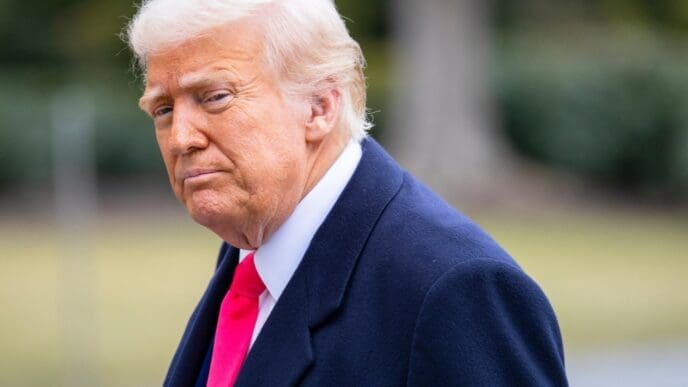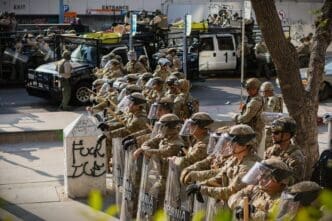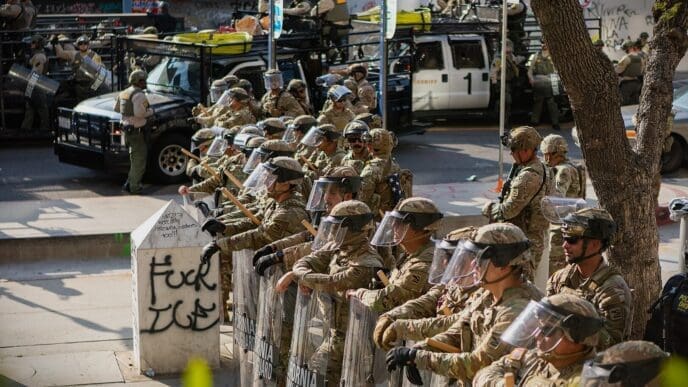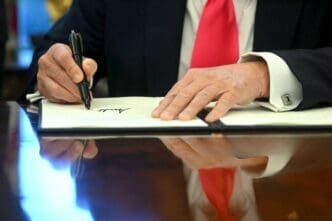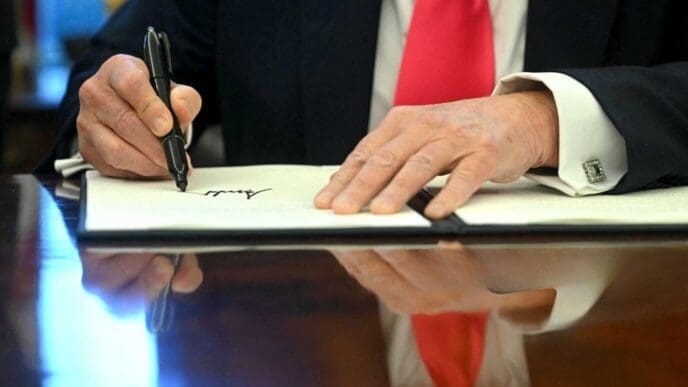Executive Summary
The Story So Far
Why This Matters
Who Thinks What?
Democrats are increasingly raising alarms that President Donald Trump may seek to cancel or commandeer future elections, citing a recent exchange with Ukrainian President Volodymyr Zelensky and a pattern of actions they deem anti-democratic. These concerns follow Trump’s provocative comments to Zelensky last month regarding elections during wartime, alongside his administration’s moves to increase control over the voting process and deploy federal troops.
Growing Democratic Concerns
The alarm among Democrats stems from a conversation where President Trump mused about the possibility of canceling elections during wartime, echoing Ukrainian law that prohibits voting under martial law. While the comments were met with laughter at the time, a growing number of Democratic officials now interpret them as serious indicators of a potential strategy to retain power.
Despite Trump not explicitly stating plans to cancel elections and having dismissed the idea of a constitutionally forbidden third term, his past rhetoric and actions have fueled these anxieties. Critics point to his administration’s efforts to exert greater control over the voting process and the deployment of troops on U.S. soil as evidence of a broader anti-democratic agenda.
Specific Allegations from Democratic Leaders
Illinois Governor JB Pritzker claimed Sunday that Trump’s threat to send troops into cities, including Chicago, was part of a plan to disrupt future elections. Speaking on CBS’ “Face the Nation,” Governor Pritzker suggested that Trump might use such deployments to claim election irregularities and seize control of the process.
California Governor Gavin Newsom echoed similar concerns last week, casting doubt on the integrity and even the occurrence of future elections. He cited the increased funding for Immigration and Customs Enforcement (ICE) under a recently passed domestic agenda law, suggesting it could become a “private police force” to deploy federal agents at polling places and potentially halt elections altogether.
Other prominent Democrats have also voiced their worries. Representative Yvette Clarke of New York warned against dismissing Trump’s comments to President Zelensky, stating that he was “not joking” about using war as a pretext to cancel elections. Arizona Secretary of State Adrian Fontes, who oversees elections in his state, linked Trump’s push to end mail voting to a pattern he believes could justify canceling the 2026 elections under a declared emergency.
Philadelphia District Attorney Larry Krasner also told CNN that Trump’s use of troops in cities serves as an attempt to create a pretext for a crisis. Krasner asserted that President Trump desires a crisis as an excuse to cancel elections, urging Americans to recognize the seriousness of the situation.
Historical Context and Recent Actions
While these warnings may appear alarmist to some, given President Trump’s lack of legal power to unilaterally cancel federal elections, Democrats highlight his history of challenging democratic norms. This includes his efforts to overturn the 2020 election results based on unsubstantiated claims of voter fraud and his subsequent portrayal of January 6 Capitol rioters as “heroes.”
President Trump has also previously floated the idea of delaying the 2020 election and, in 2022, claimed that alleged voter fraud “allows for the termination of all rules, regulations, and articles, even those found in the Constitution.” Last year, he made comments implying that Christians who voted for him in 2024 would not need to vote in 2028 because he would “have it fixed so good.”
When pressed by Fox News host Laura Ingraham to clarify these remarks and rebut critics who suggested he aimed to cancel future elections, President Trump repeatedly declined to directly address those concerns. Furthermore, his administration has recently sought to expand control over elections through executive actions, including pushing for stricter proof of citizenship requirements for voter registration and advocating for an end to mail voting and voting machines.
Public Perception and Future Implications
Democrats suggest that the concern is not about a legal maneuver to cancel elections, but rather an extralegal effort or one that leverages a manufactured crisis. This possibility resonates with a significant portion of the American public; a Public Religion Research Institute poll last year indicated that 49% of Americans believed there was a real danger of President Trump using the presidency to become a dictator.
The central question remains whether President Trump’s provocative statements are merely for effect or if he harbors genuine intentions to fundamentally alter the election process to maintain power. As these warnings escalate, Democrats are increasingly urging the public to pay close attention to these developments.


